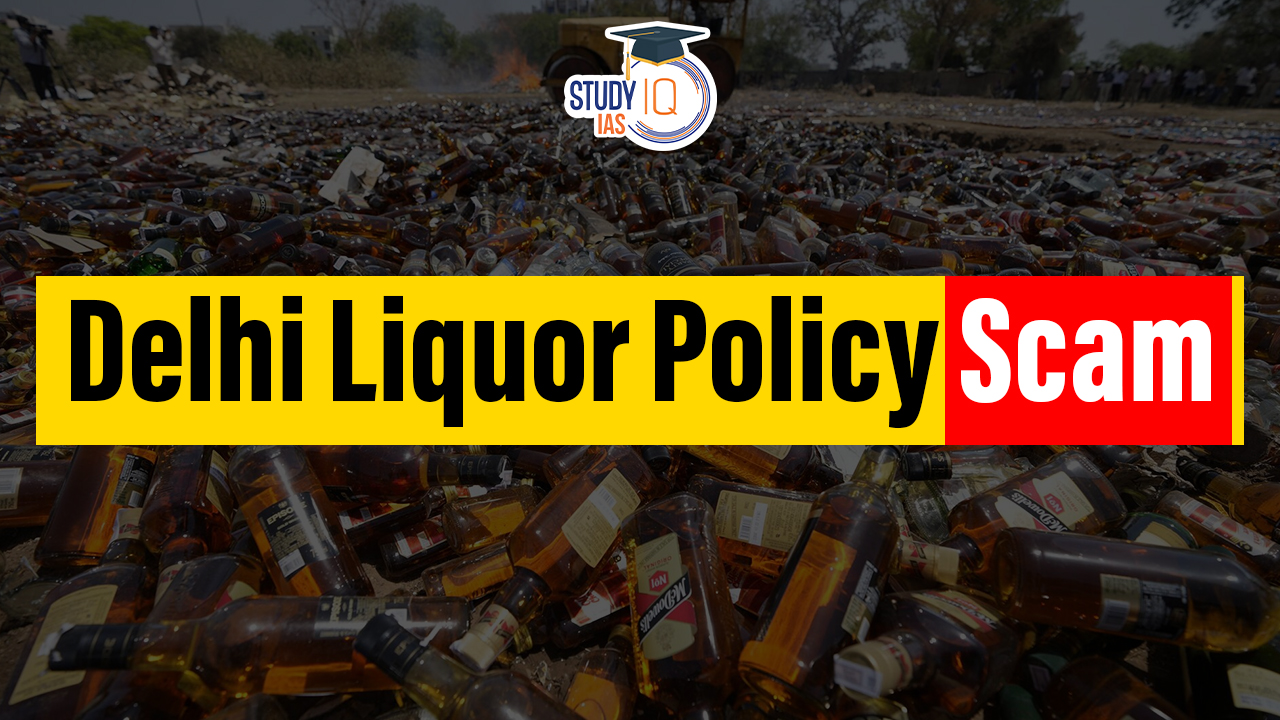Table of Contents
In a significant development in Indian politics, Delhi Chief Minister Arvind Kejriwal has been granted bail by the Supreme Court after nearly six months in jail. This decision comes amidst ongoing scrutiny of his involvement in the alleged liquor excise policy case, a matter that has captured national attention. This article delves into the implications of Kejriwal’s bail on Delhi’s political landscape and the forthcoming Haryana Assembly elections.
Arvind Kejriwal Granted Bail
Arvind Kejriwal, Delhi Chief Minister, has been granted bail by the Supreme Court after spending nearly six months in jail. His arrest was related to the alleged liquor excise policy case. The court ruled that his prolonged incarceration without trial amounted to an unjust deprivation of liberty.
Key points about his bail:
- Release Conditions: While Kejriwal is now allowed to leave jail, he cannot return to his office or sign official documents without permission from Lieutenant Governor VK Saxena.
- Court Rulings: The Supreme Court found that continuing his detention was untenable, especially since he had already been granted bail in a related case by the Enforcement Directorate (ED). Justices Ujjal Bhuyan and Surya Kant both agreed on his release, though they had differing views on the legality of his arrest by the Central Bureau of Investigation (CBI).
- Political Reactions: The Aam Aadmi Party (AAP) welcomed the decision, with leaders expressing joy and relief. They criticized the BJP, alleging that the arrest was politically motivated to undermine opposition leaders ahead of elections.
- Election Impact: Kejriwal’s release comes just weeks before the Haryana Assembly elections, where the AAP is contesting all 90 seats. His return is expected to bolster the party’s campaign.
- Case Background: The excise policy case involves allegations of corruption and kickbacks related to liquor licenses. Kejriwal and his party have denied the charges and accused the ruling BJP of targeting opposition figures.
Manish Sisodia Gets Bail
The Supreme Court granted bail to AAP leader Manish Sisodia after 17 months in jail, citing his right to a speedy trial. Sisodia, arrested in connection with the alleged excise policy scam, had been denied bail by both the trial court and the High Court. The Supreme Court emphasized that bail is the rule, not the exception, and criticized the lower courts for withholding it as punishment. Sisodia must post a Rs 10 lakh bail bond, surrender his passport, and report to the police twice a week. He is allowed to enter the Delhi Secretariat despite opposition from the CBI and ED.
Why was Delhi CM Arvind Kejriwal Arrested by ED?
Delhi Chief Minister Arvind Kejriwal was arrested by the Enforcement Directorate (ED) in connection with the Delhi Liquor Policy Scam. The arrest came after the ED conducted searches at his official residence and questioned him for nearly two hours about the money laundering probe linked to the excise policy case.
The specific reasons for Kejriwal’s arrest by the ED can be summarized as follows:
- Allegations of corruption and money laundering related to the Delhi government’s excise policy for 2021-22.
- Accusations of involvement in a conspiracy to manipulate the excise policy for personal gain.
- Alleged receipt of kickbacks worth Rs 100 crore by AAP leaders, including Kejriwal.
- Failure to comply with eight summons issued by the Enforcement Directorate (ED) since November 2023.
- The arrest came after the Delhi High Court refused to grant Kejriwal interim protection from coercive action in the money laundering probe.
Delhi Liquor Policy Scam
Delhi Chief Minister Arvind Kejriwal was arrested by the Enforcement Directorate (ED) in connection with the Delhi Liquor Policy Scam. The ED alleges corruption and money laundering regarding the 2021-22 excise policy, claiming AAP leaders received kickbacks worth Rs 100 crore. Kejriwal is accused of involvement in a conspiracy to manipulate the policy for personal gain. He skipped eight ED summons, prompting his arrest after the Delhi High Court denied him interim protection. The scam underscores allegations of corruption in the Delhi government and political turmoil surrounding Kejriwal’s arrest.
We’re now on WhatsApp. Click to Join
Delhi Liquor Policy Scam Timeline
| Date | Event |
|---|---|
| November 2021 | Delhi government implements a new excise policy. |
| October 2023 | ED sends first summons to Delhi Chief Minister Arvind Kejriwal regarding the liquor policy scam. |
| November 2023 | Kejriwal skips the first summons and attends a political rally in Singrauli, Madhya Pradesh. |
| December 2023 | Kejriwal skips second summon, denouncing it as ‘illegal and politically motivated’. |
| December 2023 | ED issued a third summons, asking Kejriwal to appear for questioning on January 3, 2024. |
| January 2024 | Kejriwal skips the third summons, alleging a conspiracy by the Central government. |
| January 2024 | ED issues a fourth summons for Kejriwal to appear on January 18, 2024. |
| January 2024 | Kejriwal responds to ED’s summonses, questioning why notices were issued if he wasn’t an accused in the alleged Delhi excise policy case. |
| January 2024 | Fifth summons issued by ED. |
| February 2024 | Kejriwal skips the fifth summons. ED moves court alleging non-compliance. |
| February 2024 | Delhi court grants Kejriwal exemption from personal appearance. |
| February 2024 | Kejriwal skips seventh summon; AAP claims they raised legal questions on “illegal summon” and hadn’t received a response. |
| March 2024 | Sessions court grants bail to Kejriwal on two complaints filed by ED for skipping summonses. |
| March 2024 | Kejriwal moves Delhi High Court against ED summonses, citing “clear intent” to arrest him with elections approaching. The high court denies him protection. |
| March 2024 | Kejriwal moves Supreme Court seeking protection from coercive action by ED. |
| March 2024 | Kejriwal skips the ninth summon; ED arrests him. |
| March 2024 | Delhi minister Atishi announces legal team’s move to seek “quashing” of Kejriwal’s arrest. |
| April 2024 | Supreme Court hears Kejriwal’s plea, and reserves order on his bail application. |
| April 2024 | Supreme Court grants interim bail to Kejriwal until the final decision is made. |
| May 2024 | Kejriwal attends a rally in Punjab, addressing his arrest and the ongoing investigation. |
| June 2024 | Supreme Court extends Kejriwal’s interim bail and schedules the next hearing for July 2024. |
| July 2024 | Supreme Court dismisses ED’s plea to cancel Kejriwal’s bail; directs trial to proceed swiftly. |
| August 2024 | Manish Sisodia, another AAP leader, was granted bail by the Supreme Court, highlighting the right to a speedy trial. |
Conclusion
The Delhi Liquor Policy Scam represents a stark reminder of the pitfalls of unchecked power and the susceptibility of governance to corruption. As the legal proceedings unfold and the political fallout intensifies, the case underscores the importance of transparency, accountability, and the rule of law in upholding the integrity of public institutions. Whether justice will prevail and the truth will be unearthed remains to be seen, but one thing is certain—the repercussions of this scandal will reverberate through the corridors of power for years to come.


 Places in News for UPSC 2025 for Prelims...
Places in News for UPSC 2025 for Prelims...
 New Phase of Operation Chakra to Combat ...
New Phase of Operation Chakra to Combat ...
 Soyuz Aircraft: History, Design and Sign...
Soyuz Aircraft: History, Design and Sign...





















